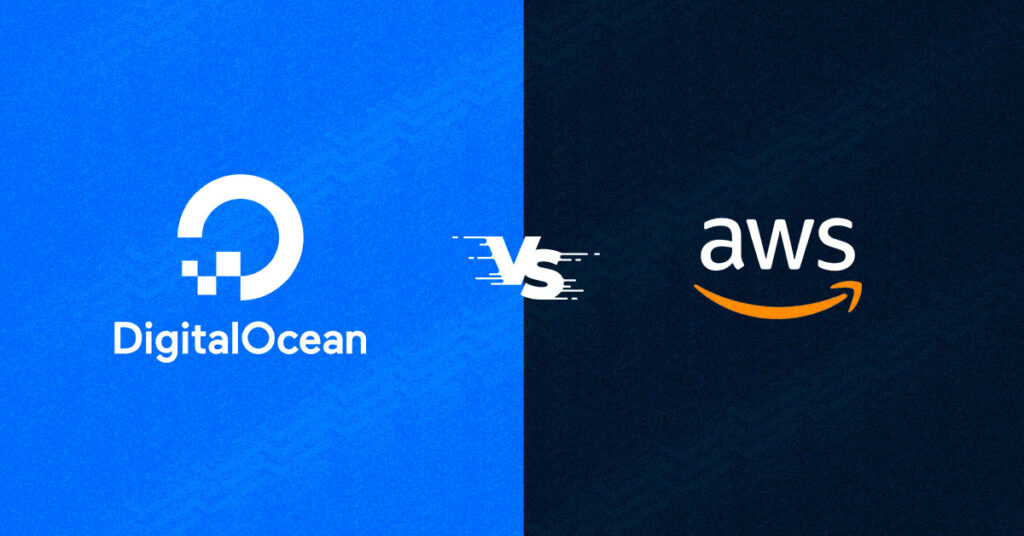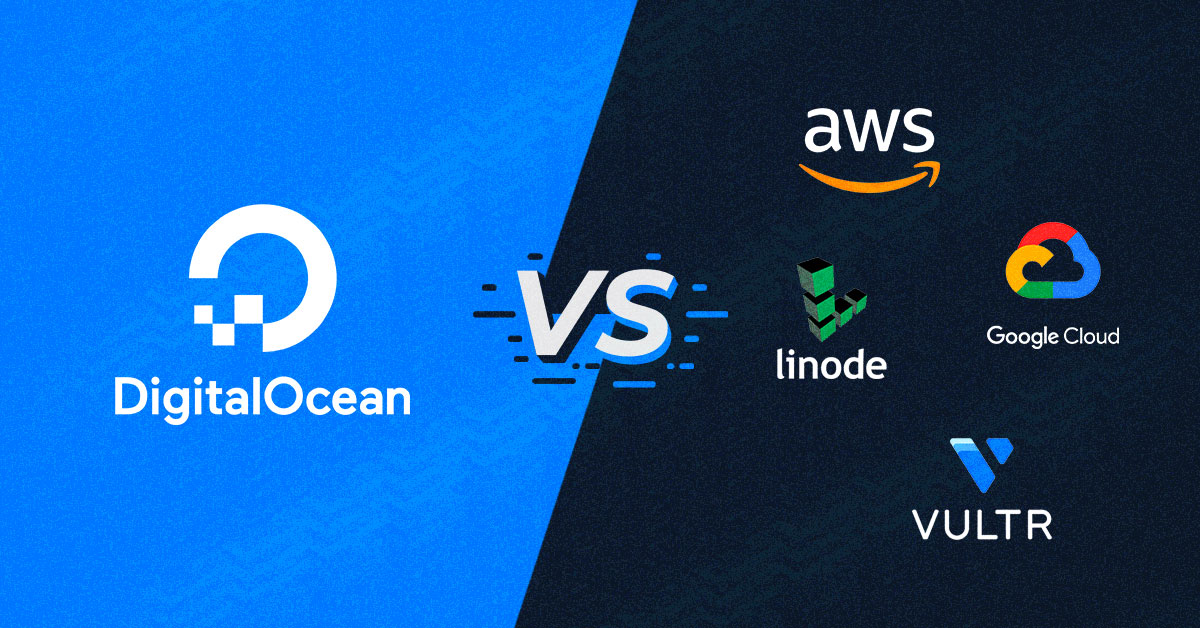
What is DigitalOcean Cloud Hosting?
Well, it’s pretty fantastic, actually.
One of the leading cloud hosting providers in the world, DigitalOcean offers immensely scalable cloud computing services to websites. Obviously, that’s particularly valuable to business entities; they can scale their operations by deploying DO applications across multiple parallel cloud servers, all without compromising on performance.
But none of this is to say that it’s is the right fit for everyone. In fact, there are plenty of DigitalOcean alternatives in the market that could suit your business’s needs better.
Here’s a quick run-down of what DigitalOcean’s stand-out benefits look like:
- A functional, no-fuss interface: DO’s strengths lie in its uncomplicated functionality, with an advanced feature-set that optimizes usability and scalability without clutter. One-click apps complete the picture, letting small-scale developers and organizations automate and integrate with third-party tools with ease.
- Jaw-dropping performance: As an SSD-based virtual machine provider, DigitalOcean offers lightning-fast boot time with its droplets (55 seconds!). It also helps that their cloud servers are supported by powerful Hex core machines for incredible performance.
- Affordability: Starting with a basic plan set at $5 a month, DigitalOcean ramps up to hourly and monthly payment options that afford flexibility and scalability to developers and businesses.
There’s a lot more to say about DigitalOcean (its data centers, storage, ease of deployment) that could fit into a whole other article – and you can find that article here.
But it’s completely possible that one of the top DigitalOcean alternatives could be the right choice for your business instead. Let’s look at some of your other options in this article.
(Or, you could depend on Cloudways’ managed DigitalOcean hosting services to fill in the gaps instead. You don’t have to leave behind DigitalOcean because you’re worried about managed security or easy application management. Cloudways can take care of all that and more.)
Want to try out DigitalOcean Cloud Hosting?
Affordable hosting plans with security and scalability.
If you’d still prefer to look into DigitalOcean competitors, however, first a small note. When we say “DigitalOcean alternatives”, we mean cloud hosting providers designed for development and scalability. Too many businesses, in searching for cheaper providers, make the mistake of going for services like DreamHost or Bluehost, which are shared hosting providers.
And that means they miss out on those unique cloud hosting features that make running a business a breeze.
The competitors listed in this piece are genuine DigitalOcean alternatives, in that they too offer scalable virtual hosting across a network of servers for an optimized, secure and high-performance experience. There’s no resource sharing here, nor the risk of poor performance or security breaches.
Let’s dive in.
DigitalOcean vs AWS
Amazon Web Services is gargantuan – its computing capacity far outstrips not just DigitalOcean, but the rest of its competitors as well. While DigitalOcean is more developer-focused, AWS’s enormous size lets it cater to just about everyone with its dizzying range of cloud hosting services.
The largest of AWS’s cloud hosting services is Amazon EC2, and this is the product DigitalOcean most directly competes with.
Here’s how both compare with each other.
| Features | DigitalOcean | AWS |
| Pricing |
|
|
| Performance |
|
|
| Security |
|
|
| Scalability |
|
|
| Support |
Three-tiered support model:
|
Three-tiered support model:
|
DigitalOcean Pricing vs AWS Pricing Plans
Both DigitalOcean and AWS have simple pricing plans, though DigitalOcean is a step ahead when it comes to budgeting plans.
DigitalOcean uses an hourly rate for the use of its Droplets, which results in a predictable monthly price. While this simplifies budgeting and planning, it does mean you could end up paying more for resources you haven’t used. However, there’s no need to make any guesstimates about how much you’ll end up paying.
AWS, on the other hand, uses a pay-as-you-go approach, so you’re only paying for the resources you use.
Entry-level pricing: DigitalOcean remains the budget-friendlier option, with pricing that starts from $5 and goes up to $640 per month for an entry-level server. AWS pricing begins at $14 and goes up to $2500 for the same.
Given that DigitalOcean is better suited for small businesses, this makes sense. However, larger enterprises with more complicated requirements might favor sticking to AWS for their web hosting and computing needs.
Intermediate pricing: DigitalOcean offers intermediate plans for 4GB and 8GB, with the same features but different transfer capabilities. The 4GB plan costs $20 per month for 2 Core CPUs, 80GB SSD, 4GB memory and 4TB bandwidth. The 8GB plan costs $40 per month for 4 Core CPUs, 160GB SSD, 8GB memory and 5TB bandwidth.
These prices are comparable to Levels 4 and 5 of AWS’s pricing plan. Their 4GB plan costs $20 for 2 Core CPUs, 80GB SSD, 4GB memory and 5TB bandwidth. The 8GB plan costs $40 per month for 2 Core CPUs, 160GB SSD, 8GB of memory and 5TB bandwidth.
Premium pricing: DigitalOcean’s 128GB plan is priced at $640 per month for 24 Core CPUs, 2.56TB SSD and 11 TB bandwidth. There’s also a 192GB plan for $960 a month with 32 Core CPUs, 3.84TB SSD and 12TB bandwidth.
This is comparable to AWS’s level 7 of pricing for the 32GB plan, with 8 Core CPUs, 32GB memory, 640GB SSD and 7TB bandwidth, at $160 a month.
DigitalOcean accepts both credit cards and PayPal, while AWS only accepts credit cards.
DigitalOcean Features vs AWS Features
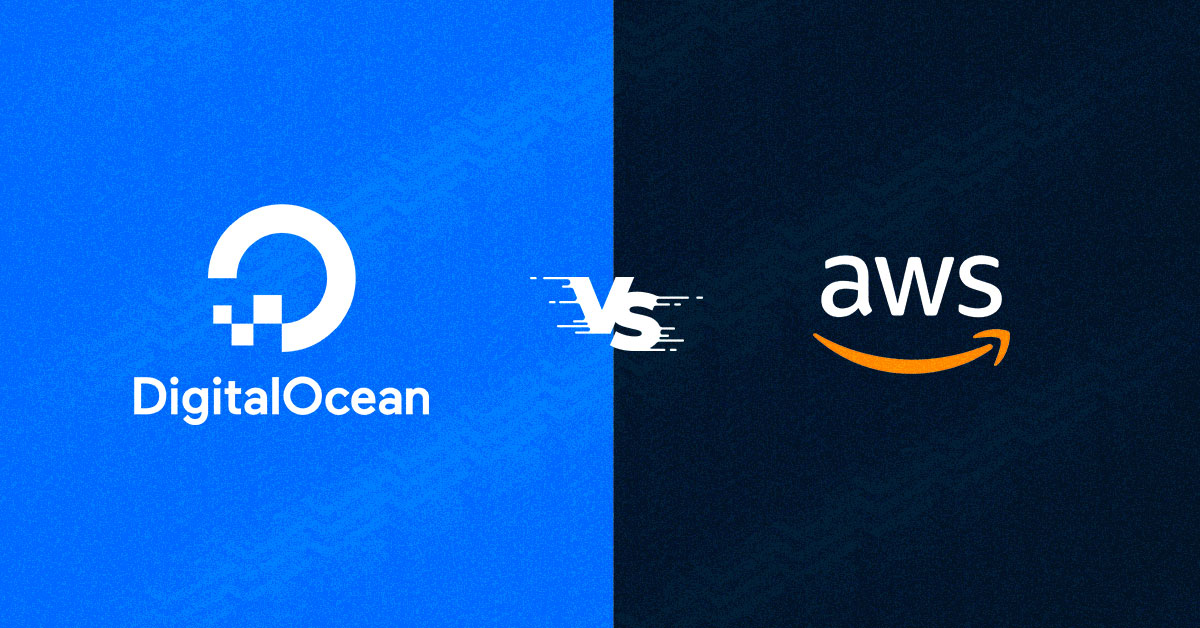
Whether you choose DigitalOcean or AWS really comes down to your needs as a developer or business. Let’s look at their most important features to see which one’s better for you.
Performance
AWS and DigitalOcean are both at the top of their respective games when it comes to performance. DigitalOcean, of course, is a pioneering service that was especially designed for developers, but AWS is one of the many competitors that has caught up. Both providers have an excellent uptime of 99.99%, guaranteed by an SLA.
That said, according to a major study, DigitalOcean’s CPU performance per dollar far outstrips other cloud hosting providers – AWS by nearly 40%. However, AWS has more tricks up its sleeve, such as 70+ data centers compared to DO’s 13. So with AWS you’ll find it far easier to choose a data center nearer your target audience’s location.
AWS offers a paid-for CDN, while DigitalOcean’s CDN comes integrated with their services.
Performance-wise, the choice between DigitalOcean and AWS comes down to whether you’re a small-scale business or developer, or a large-scale enterprise.
Of course, if you’re worried about managing AWS’s massive infrastructure for optimized performance, there’s no need to drop it. Instead, opt for Cloudways’ managed AWS hosting, which lets you manage applications, servers and backups easily with 1-Click.
Security
Both AWS and DigitalOcean have invested heavily in the security of their cloud infrastructure. Both let you install SSL certificates, SSH keys and firewalls. Neither has automated backups, but both have tutorials to help you set them up.
DO’s firewall is free for indefinite use, and scales as you scale your Droplets. AWS’s firewall does involve some costs, but it also includes managed DDoS protection that DigitalOcean does not. Again, this makes AWS a better choice for enterprises concerned about security compliance.
Scalability
AWS and DigitalOcean are fairly similar when it comes to app scalability – both are incredibly powerful cloud providers that can scale your apps to receive immense requests. Again, the difference lies in how they serve the needs of their target audience.
AWS gives you access to nearly endless options to scale your application in a straightforward manner, from AWS RDS to Amazon Aurora – these numerous technology options are invaluable for global enterprises. It also has the Amazon Cloudfront CDN to seamlessly manage your image and video delivery as your traffic grows.
DigitalOcean’s scalability is just as simple and flexible, but more developer-centric, as your team has the space to create the optimal setup for your app with tools like DO’s API and CLI.
Support
Readily available support is a cornerstone for successful cloud deployment, and DigitalOcean leads the pack here. It offers a three-tiered support model:
- Developer support: Free technical support is available 24/7 from the support staff.
- Business support: Those who spend $500 every month get access to additional support, including help and guidance from Customer Success Managers.
- Premier support: This is perfect for enterprises. For a monthly fee, it gives you access to high-level support, complete with a 30-minute response time and access to the engineering team for optimized deployment.
AWS’s support more or less matches DigitalOcean’s, and beats it in terms of response time. Basic support is free. You can also upgrade to one of three tiers.
- Developer support: With a minimum response of 12 hours, this comes down to 3% of your monthly charges, or $29.
- Business support: A minimum response time of 1 hour in the event of a down system, it comes down to 10% of monthly charges, or $100.
- Enterprise support: This high-level tier guarantees a response time of 15 minutes for critical events, and costs around 10% of monthly charges, or $15000.
Start AWS Cloud Hosting today
The most reliable web hosting for all kinds of web-based applications offering high-speed performance and scalability.
DigitalOcean vs Google Cloud
Another leading competitor, Google Cloud offers a suite of cloud computing services that operate on the same internal infrastructure Google employs for its end-user services. Just like AWS, Google Cloud is more suited to enterprise-level users than DigitalOcean is.
| Features | DigitalOcean | Google Cloud |
| Pricing |
|
|
| Performance |
|
|
| Security |
|
|
| Scalability |
|
|
| Support |
Three-tiered support model:
|
Basic support:
|
DigitalOcean Pricing vs Google Cloud Pricing
Google Cloud has both free and paid pricing plans. With the free plan, customers can use certain products like Cloud Storage and Compute Engine for free, but of course, restrictive limits on monthly usage make it unsuitable for any sort of business.
Upon joining, new customers get a 90-day free trial with up to $300 in credits to test, run and deploy their applications (compared to DigitalOcean’s $100). Both existing and new customers can use 20+ products free of charge, with limits on monthly usage. Like AWS, Google Cloud also uses a pay-as-you-go model that suits it to larger enterprises.
Google Cloud can be significantly pricier than DigitalOcean due to its pricing strategies for individual services like BigTable and BigQuery. You can work out an approximation of how much you’ll spend with this pricing calculator that requires you to input some resource requirements. You can also purchase a Committed Usage contract for discounts, or utilize certain configurations of CPU, memory and services.
DigitalOcean, as previously discussed, has an hourly rate that is capped monthly.
DigitalOcean Features vs Google Cloud Features
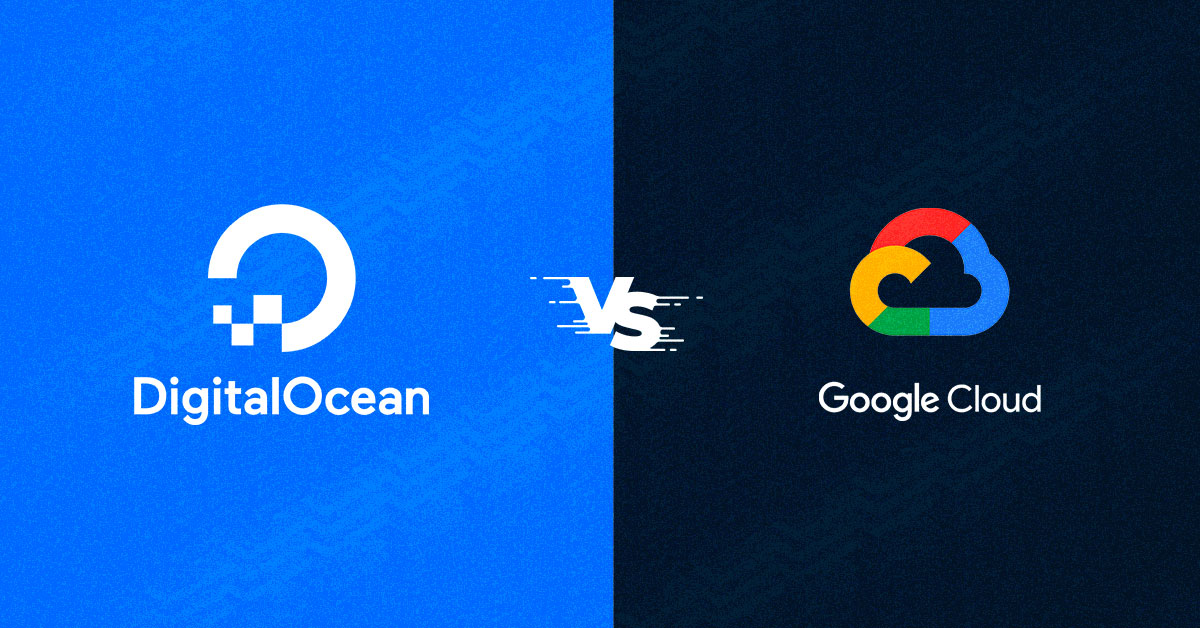
Performance
Compared to DigitalOcean’s 13 data centers, Google Cloud has data centers in 32 locations across the world. Like DO, it has a 99.99% uptime guarantee supported by an SLA. It also offers compensation in the rare case that there is any downtime. The upshot is incredible uptime and loading speeds the world over.
Google Cloud’s disk space and bandwidth are flexible, and you pay according to your usage. In DigitalOcean, it depends on the allocated bandwidth of your Droplet, though you can buy additional storage.
Additionally, since all Google services are integrated in GCP, you can easily deploy your project in any of them with the servers available. Customization is also easy.
Security
Google, as a leading cloud service provider, is an obvious choice to target for hackers and malicious attacks. Just as obviously, Google Cloud’s enormous security arsenal goes a few steps beyond DigitalOcean to defend your data from enterprise-level attacks.
This includes firewalls, shielded virtual machines, binary authorization and so much more. And of course, it’s updated with all the latest internet safety standards at all times. However, SSL and other security tools are your responsibility to install and implement, just as they are with DigitalOcean.
However, Google Cloud does not offer managed backups or free SSL security. To avail of these, as well as a built-in CDN, server and app monitoring and more, you can just use Cloudways’ managed hosting for Google Cloud.
Scalability
As mentioned earlier, DigitalOcean offers flexible scalability, but it’s more developer-centric compared to Google Cloud.
Google Cloud, on the other hand, thanks to its huge infrastructure (which includes its hyper-scalable data warehouse BigQuery), is able to cater to enterprise scalability needs much more nimbly.
Support
DigitalOcean and Google Cloud both have active user communities and offer online documentation and free support at a basic level. Here’s what Google Cloud’s support tiers look like:
- Basic support: This is free for all Google Cloud users with a billing account, and is only limited to billing and payments issues. Chat, community and phone support are available here.
- Standard support: Suitable for small and medium workplaces, standard support offers access to the technical support team for issues like troubleshooting and bug fixes. The response time is about 4 hours, and it costs $29 a month.
- Enhanced support: This offers access to one-to-one technical support, and is suitable for larger organizations that offer additional services. The response time falls to 1 hour, and it includes Cloud Support API. It costs $500, or 3% of your Google Cloud charges.
- Premium support: This is high-level support with a response time of 15 minutes. Best suited to enterprises with heavy production workloads, it offers a dedicated Technical Account Manager and access to Technical Solution Engineers. It costs around 4% of Google Cloud charges or $12500 every month.
Launch your website on Google Cloud today
For best performance and speed, check out managed GCP hosting on Cloudways
DigitalOcean vs Linode
With multiple products and transparent services, Linode has a devoted and satisfied Linux client base around the world. And it’s a closer competitor of DigitalOcean with regards to being developer-centric. Their services are thus more comparable. Launching a Linode cloud server is quite easy even for a beginner.
| Features | DigitalOcean | Linode |
| Pricing |
|
|
| Performance |
|
|
| Security |
|
|
| Scalability |
|
|
| Support |
Three-tiered support model:
|
Detailed support model:
|
DigitalOcean Pricing vs Linode Pricing Plans
Linode’s pricing plans are quite transparent, with no surprise bills or lock-ins. The most basic plan starts at a monthly $5 for 1GB, and goes up to $480 for 96GB. More advanced plans are priced as follows:
- A monthly $5 per 1 core, 1GB RAM, 25GB SSD and 1TB transfer
- A monthly $10 per 1 core, 2GB RAM, 50GB SSD and 2TB transfer
- A monthly $20 per 2 cores, 4GB RAM ,80 GB SSD and 4TB transfer
Like DigitalOcean, Linode charges by the hour. However, like AWS, it’s a pay-as-you-go model so you’re only billed for the resources you use.
DigitalOcean Features vs Linode Features
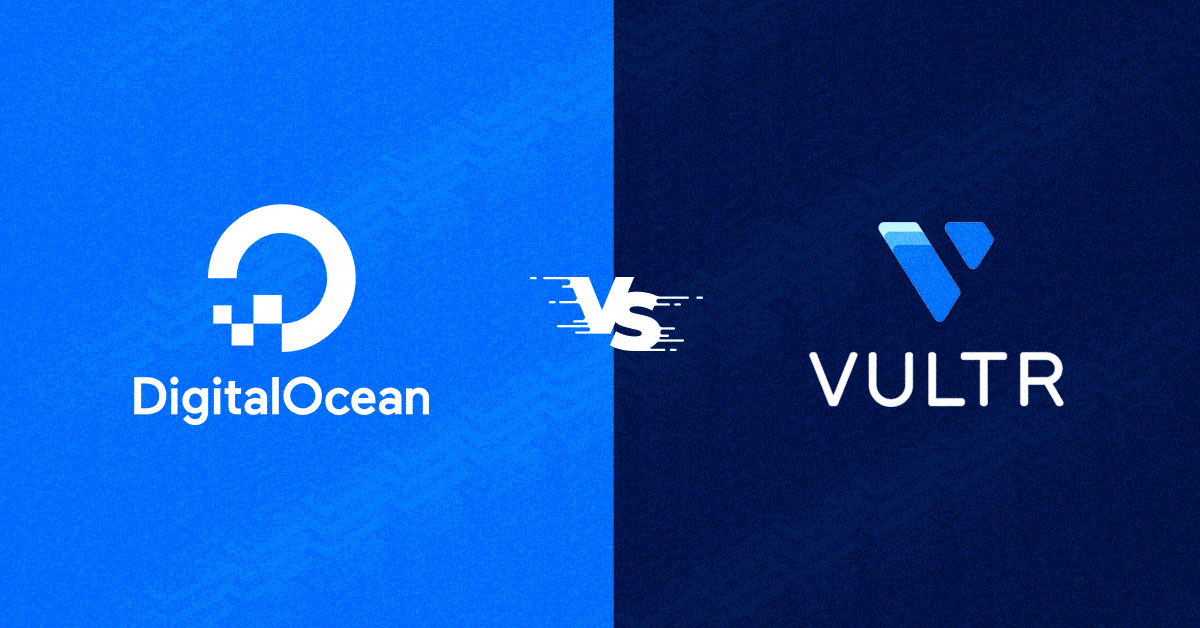
Performance
Linode is much more comparable with DigitalOcean in terms of performance and developer-centricity.
Linode has 11 data center locations around the world to DigitalOcean’s 13, and it uses multiple load balancers to spread traffic over servers for optimized uptime.
Like DigitalOcean, Linode too has an uptime of 99.99% backed by an SLA. Linode’s Cloud VPS also makes it a strong contender as a DigitalOcean alternative, particularly thanks to its lightning fast Intel E5 processors and native SSDs for optimal performance. It also has a 40 gigabyte network with multiple redundancy levels.
Linode offers free and fast automatic server upgrades as well. In case there’s ever any downtime, users are entitled to service credits instead of refunds.
However, where DigitalOcean has a built-in CDN to boost page loading times, Linode lacks one, meaning you’ll have to incorporate one yourself.
That said, you don’t have to worry about the features Linode is missing. The better idea would be to use Cloudways’ managed Linode hosting and gain access to the best-in-class CloudFlare CDN, as well as 1-Click advanced server management, easy application management, and free SSL installation and auto-renewal.
Security
Unlike DigitalOcean, Linode offers free DDOS protection on all its servers. Like DigitalOcean, has a Cloud firewall service as well. That said, DigitalOcean does pull in ahead with features like its Virtual Private Cloud which makes it more feasible for larger businesses and projects with sensitive information.
Both require you to perform critical security activities like server monitoring and patch updates yourself, or to use a managed hosting service like Cloudways for the job.
Scalability
Linode and DigitalOcean are both quite powerful when it comes to scaling. DigitalOcean prefers horizontal scaling to vertical scaling, which it finds more problematic and less likely to lead to high performance gains.
With Linode, you just have to choose your new RAM size and click Resize. That’s all it takes to migrate your servers in accordance with the new configuration.
Both Linode and DigitalOcean make cloud deployment scalability easy with their tiered server plans so you can move to better hardware as your needs grow.
Support
Linode doesn’t offer tiered support the way DigitalOcean does. Instead, you can get in touch with the support staff via their US or international numbers. They also have ticket, IRC and email options. Phone and email support is available 24/7/365.
Additionally, they have a helpful community Q&A where users offer answers and solutions for issues. And there’s a Search Docs and Resources section as well that you can turn to for guides and answers.
Switch to Linode Web hosting today
Linode web hosting has 11 data centers around the globe and the price starts from $5 only!
DigitalOcean vs Vultr
A relative newcomer, Vultr has quickly managed to catch up with more established competitors and is now known for its excellent performance and resilient SSD storage. Like DigitalOcean, it’s developer-centric and facilitates businesses of all sizes. And it’s the closest price competitor to DO in this list as well.
| Features | DigitalOcean | Vultr |
| Pricing |
|
|
| Performance |
|
|
| Security |
|
|
| Scalability |
|
|
| Support |
Three-tiered support model:
|
Basic support:
|
DigitalOcean Pricing vs Vultr Pricing Plans
Entry-level pricing: Vultr’s entry level plan goes even lower than DigitalOcean, at $2.5 per month for 1 Core CPU with 10GB SSD, 512 MB memory and 0.50TB bandwidth. As you’ll remember from earlier, this contrasts with DigitalOcean’s $5 a month for 1 Core CPU with 25GB SSD, 1GB memory and 1TB transfer capabilities.
Intermediate pricing: Like DigitalOcean, Vultr also offers two plans at the intermediate level. You can choose to pay $20 per month for 2 Core CPUs, 80GB SSD, 4GB memory and 3TB bandwidth. Or you can pay $40 a month for 4 Core CPUs, 160GB SSD, 8GB memory and 4TB bandwidth.
Premium pricing: Vultr’s premium plans start at $320 a month for 16 Core CPUs, 64GB memory, 1.2TB SSD and 10TB bandwidth. They also have a $640 per month option with 24 Core CPUs, 1.6TB SSD, 96GB memory and 15TB bandwidth.
DigitalOcean Features vs Vultr Features

Performance
Vultr has 17 data centers around the world to DigitalOcean’s 13, but both providers are comparable in terms of minimizing latency problems.
Compared to DigitalOcean’s 99.99%, Vultr claims to provide 100% uptime on the basis of its advanced architecture, and backs this up with an SLA agreement. In case of any downtime, they offer SLA credits based on your hourly costs.
In addition, features such as 100% SSD storage, and dedicated and fully automated servers help boost the performance of applications hosted on Vultr.
Security
Security is a priority for Vultr and DigitalOcean – both use cloud firewalls to keep your data safe, plus multi-factor authentication that includes security monitoring, backup security, access logging and more.
However, DigitalOcean does not offer DDOS protection to protect your data against large attacks. Vultr does, and so can filter your traffic to detect attacks before they even get to your server.
Scalability
DigitalOcean makes scalability easy through its three-tiered approach for Standard, General Purpose and CPU optimized plans.
While Vultr doesn’t use tiers, it does have 10 different plans for business scalability. So if you want to upgrade from a 512MB plan with 0.5TB bandwidth to an 8GB plan with 4TB bandwidth, that’s easily done.
Both therefore offer excellent scalability, though Vultr might make customized plans easier.
Support
Support is where Vultr loses out. Where DigitalOcean has a three-tiered plan for support, Vultr doesn’t have any contact information on its site. It does have a forum where you can ask for help, but this is obviously not a suitable solution for mission-critical issues.
Luckily, you don’t have to turn away from Vultr just for its lack of support. Instead, you can turn to Cloudways to manage your Vultr hosting, complete with 24/7365 expert technical assistance and 1-Click functionality.
Ready to start your Vultr Hosting free 3-days trial on Cloudways?
You can go live within minutes and very easy to manage, Cloudways managed Vultr Cloud hosting is a great option.
To Conclude, There are Plenty of DigitalOcean Competitors to Choose From
DigitalOcean alternatives spoil you for choice. In the end, the decision comes down to what kinds of business you operate, the extent of scalability and support you need, and the right pricing.
The great thing is you never have to drop the provider of your choice for lack of one or two features; you can get all of those and more with Cloudways’ managed hosting for DigitalOcean, AWS, Google Cloud, Linode and Vultr.
Frequently Asked Questions
Who are DigitalOcean competitors?
Direct DigitalOcean competitors include Linode and Vultr. DigitalOcean also manages to hold its own against Amazon Web Services and Google Cloud Platform.
Is DigitalOcean overpriced?
Not at all! In fact, DigitalOcean offers some of the most affordable pricing plans, especially at an entry-level.
That said, some might find its Block Storage a bit expensive. One way to overcome that problem is to use Cloudways managed DigitalOcean hosting to manage storage.
Is it cheaper to buy DigitalOcean Droplets?
DigitalOcean Droplets are quite affordable at just $5 a month to start, for 512 MB, 1 Core CPU and 20 GB SSD. You can choose from the several different Droplet sizes without worrying about final costs – DigitalOcean’s hourly pricing makes their plans quite predictable.
Start Growing with Cloudways Today.
Our Clients Love us because we never compromise on these
Manal Y
Manal works in digital marketing at Cloudways, where she shines up content primarily by torturing the Oxford comma. After hours, you can find her rambling about books, movies and music, and ranting about media and politics to anyone foolhardy enough to listen.
